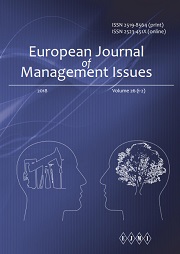New institutional framework for global climate change prevention: A fossil fuel firm’s perspective in light of a theory of the global commons
New institutional framework for global climate change prevention: A fossil fuel firm’s perspective in light of a theory of the global commons
Author(s): A. C. PresseSubject(s): Economy, Business Economy / Management, Energy and Environmental Studies, Economic policy
Published by: Дніпропетровський національний університет імені Олеся Гончара
Keywords: entrepreneurship;climate change;corporate governance;sustainable management;global economic policy;
Summary/Abstract: Purpose. This conceptual paper takes the firms’ perspective about practical implications of the theory of the global commons. Global commons are the areas and resources defined as those being beyond national jurisdictions. Their governance, today, however, is still coordinated largely by national states.Design/Method/Approach. This paper introduces a firm's perspective based on the global commons approach.Findings. At present, companies deal with national governments concerning their emissions and, perhaps, the international emissions trading scheme. Theory argues about the need to shift the responsibility from the national to global governmental levels, i. e. the United Nations.Theoretical implications. Given the input orientation put forward by this approach, companies – except fossil fuel extractors – would not actually have to deal with any governmental or regulatory bodies but can focus their capabilities on what they are best at: serving the needs of their customers. Fossil fuel extracting companies, in order to sell these fossil fuels, will have to purchase the amount of emission rights before they sell the fuel into the economic cycle. This approach establishes an economic incentive for companies to employ technologies with low or zero fossil fuel consumption while making the transition path predictable. The underlying concept, therefore, can also be referred to as an immissions scheme (from Latin immissio, “to let in”).Originality/Value. Governing a global common through national structures is inappropriate and does not reflect the nature of the underlying resource. This paper proposes a solution to the problem of global climate change.Further research. Further research is needed to address the effect of this strategy on different industries, and how those are affected based on the degree to which they employ fossil fuels.Paper type – сonceptual.
Journal: European Journal of Management Issues
- Issue Year: 26/2018
- Issue No: 1-2
- Page Range: 29-38
- Page Count: 10
- Language: English

